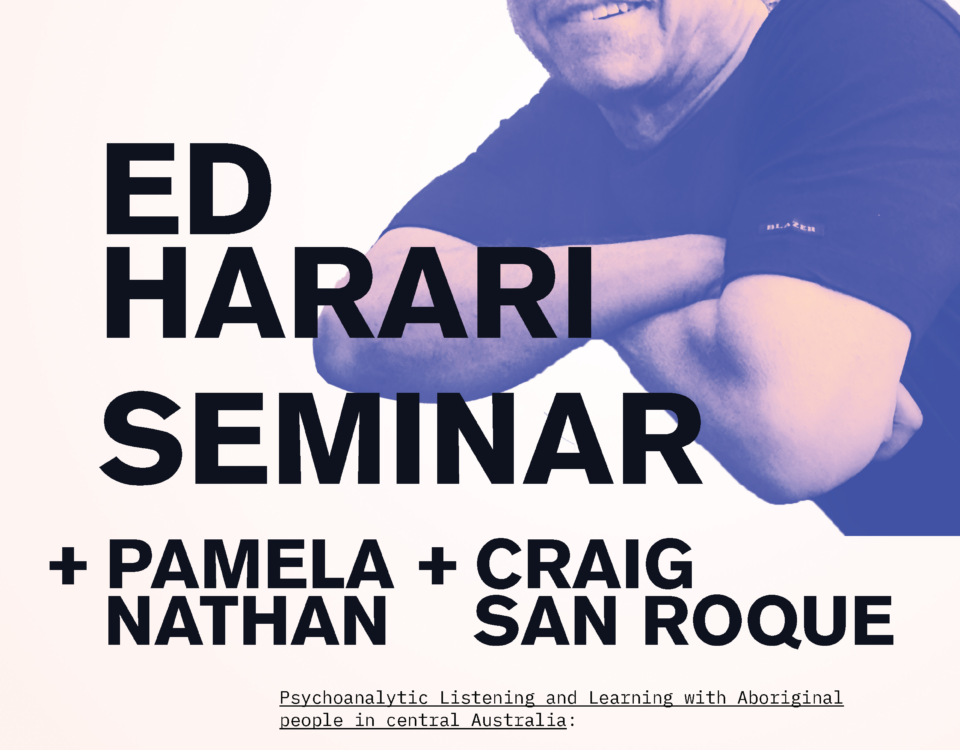Psychoanalytic psychotherapy – the key to changing minds and saving lives
November 6, 2015Psychology Week 2015 Update
November 10, 2015By Pamela Nathan
Psychology Week, this year being celebrated from November 8-14, is an annual initiative of the Australian Psychological Society and is aimed at increasing public awareness of how psychology can help people and communities lead healthier, happier and more meaningful lives.
To celebrate, we will be posting a blog every day this week, to help you become a little more informed about psychology and the central role it plays in CASSE’s work creating safe, supportive environments for individuals, families and communities.
So, for our first blog, I would like to introduce ‘psychoanalysis’ – the frequently misunderstood branch of psychology that underpins CASSE’s approach to changing minds and saving lives.
What is Psychoanalytic Psychotherapy?
The so-called primitive world is the terrain of the psychoanalytic psychotherapy consulting room. People come for consultations for all sorts of problems. Many come in a state of breakdown, or fear a breakdown, or have already had a breakdown – so called. Most feel boredom, fear, paralysis, distress and murderous rage and suffer abuse of varying degrees and kind. Mental pain underlies all these states: the pain of traumatic, throbbing losses that assault the mind and body like the sharp piercing of boomerang spearings or a volley of bullets. Helplessness, despair and rage are alive but might be buried in unknown country. People can feel imprisoned, deadened and controlled and want freedom and awareness. People don’t want to know their pain; the lashing pain can lacerate and it can be too much to know, but as Francis Thompson on The Holocaust says: No man ever attained true knowledge unless his heart had been torn up by the roots.
Who can benefit?
If you are in pain, or distress, or difficulty, have experienced repeated failures, want to know more about yourself and want to find a home for your feelings and healing for your suffering, make changes and save or live your life, then psychoanalysis can help.
Let’s get technical…
Psychoanalysis is a treatment for unbearable or repressed emotional pain and suffering, repeated problematic living and relationships, mental illness and a method for analysing or exploring the workings of the mind.
Treatment can be long, short-term, individual or group. It makes conscious what are unconscious using techniques of dream analysis and free association.
In treatment the focus is on the analyst-patient relationship as the main source of information and transformation. The main tools used in analytic therapy are attending to the transference and countertransference and making interpretations.
The therapist attends to the transference – meaning the conscious but also unconscious expression, repressions and repetitions of early, past and present experiences, relationships, thoughts, phantasies and feelings, both positive and negative, transferred to the therapist.
The therapist also attends to the counter-transference, which is receiving, feeling, thinking about and interpreting the transferred communications of the patient. A central psychoanalytic belief holds that our conscious world is filtered by the psyche of unconscious wishes, fears and beliefs which can only be partly explained by actual events in the external world.
Psychoanalysts believe the past has a living presence and can be alive in the here and now. Listening to, talking about and working with what is being transferred from early infantile experiences in a holding therapeutic relationship with the provision of a container and the capacity for reverie are instrumental in sharing temporal emotional experiences, understandings, meanings and transformations.
If you would like to know more about CASSE’s programs and services, visit http://www.casse.org.au/what-we-deliver/ or contact us.





